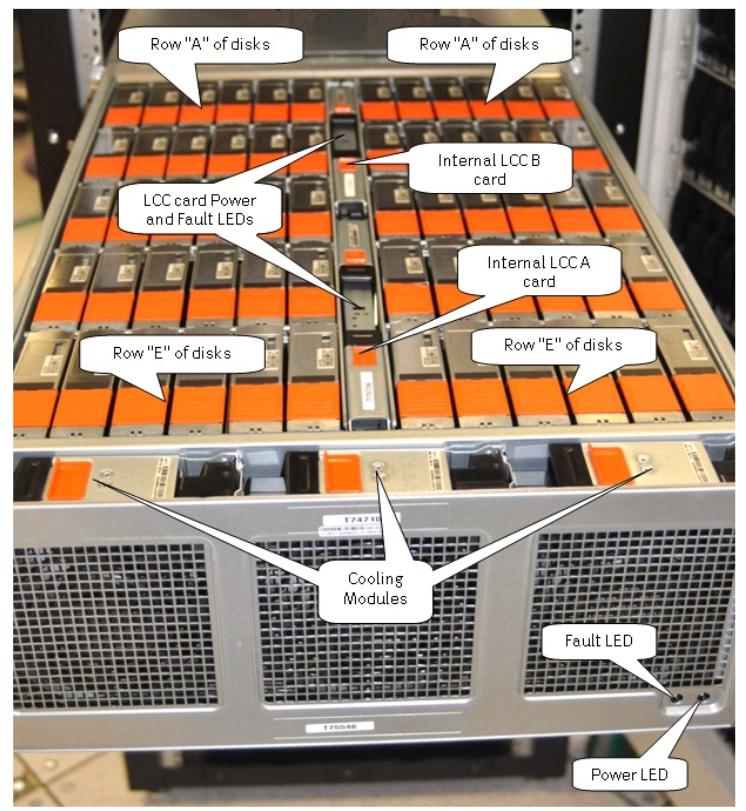Here is a link. We're hoping to have a shelf of SAS versions in about a week. 7200rpm/~250MB/s sustained/5yr warranty.
Last edited:
Follow along with the video below to see how to install our site as a web app on your home screen.
Note: This feature may not be available in some browsers.
I would get one but all those extra platters scare the shit out of me.
I would get one but all those extra platters scare the shit out of me.

Large drives like this really don't make sense until the price per TB is lower or at least equal to smaller drives. Sure, a larger capacity drive allows you to save on power consumption and physical drive space, but is it really worth paying $300 more for a drive just to save $1/month in power and drive space? Also, the bandwidth of two 6TB drives can be much higher than one 12TB drive.
$300 = 12TB using Two 6TB drives with 2x SATA 6gb bandwidth (~$2 month in power, two drive bays)
$600 = 12TB using one 12TB drive with 1x SATA 6gb bandwidth (~$1 month in power, 1 drive bay)
Doesn't make a lot of sense, however, this certaintly does:
$300 = 12TB using Two 6TB drives with 2x SATA 6gb bandwidth (~$2 month in power, two drive bays)
$300 = 12TB using one 12TB drive with 1x SATA 6gb bandwidth (~$1 month in power, 1 drive bay)
Just my opinion....
Enterprise
If I can go from 1000 drives to 500 that saves some money.
Large drives like this really don't make sense until the price per TB is lower or at least equal to smaller drives. Sure, a larger capacity drive allows you to save on power consumption and physical drive space, but is it really worth paying $300 more for a drive just to save $1/month in power and drive space? Also, the bandwidth of two 6TB drives can be much higher than one 12TB drive.
$300 = 12TB using Two 6TB drives with 2x SATA 6gb bandwidth (~$2 month in power, two drive bays)
$600 = 12TB using one 12TB drive with 1x SATA 6gb bandwidth (~$1 month in power, 1 drive bay)
Doesn't make a lot of sense, however, this certaintly does:
$300 = 12TB using Two 6TB drives with 2x SATA 6gb bandwidth (~$2 month in power, two drive bays)
$300 = 12TB using one 12TB drive with 1x SATA 6gb bandwidth (~$1 month in power, 1 drive bay)
Just my opinion....
your not accounting for power/cooling and floor space.
Costs me 12K to put in another rack.
500 12TB drives cost 150K more than 1000 6TB drives
It doesn't matter how many racks you have. If it costs more than $300 to run a single drive, then a single 12TB drive is more cost effective than two 6TB drives.
-But that's just throwing random numbers out. 1 drive just costs $1 a month to run?
-Can't get SAS 6TB drives for $150 each.
-In your example I would need to run the two 6TB drives in RAID 0, increasing my failure rate by 2x
Until you can't put in another rack.... Datacenters are only so big.
And that doesn't account for the $50,000 for the drive shelf...
I'm fairly certain our last san was ~$1000 a drive slot with a 600 drive max...
So the extra 150K for the drives is chump change. Trust me.
We have petabytes of storage in 2 datacenters I've seen this sliced and diced every way possible. High density High Capacity wins 90% of the time the 10% is when the only thing that matters is speed.
Even personal use, I can buy a Nas that holds 4 drives, should I just have a living room full of Nas boxes?


EMC VMAX

Large drives like this really don't make sense until the price per TB is lower or at least equal to smaller drives. Sure, a larger capacity drive allows you to save on power consumption and physical drive space, but is it really worth paying $300 more for a drive just to save $1/month in power and drive space? Also, the bandwidth of two 6TB drives can be much higher than one 12TB drive.
$300 = 12TB using Two 6TB drives with 2x SATA 6gb bandwidth (~$2 month in power, two drive bays)
$600 = 12TB using one 12TB drive with 1x SATA 6gb bandwidth (~$1 month in power, 1 drive bay)
Doesn't make a lot of sense, however, this certaintly does:
$300 = 12TB using Two 6TB drives with 2x SATA 6gb bandwidth (~$2 month in power, two drive bays)
$300 = 12TB using one 12TB drive with 1x SATA 6gb bandwidth (~$1 month in power, 1 drive bay)
Just my opinion....